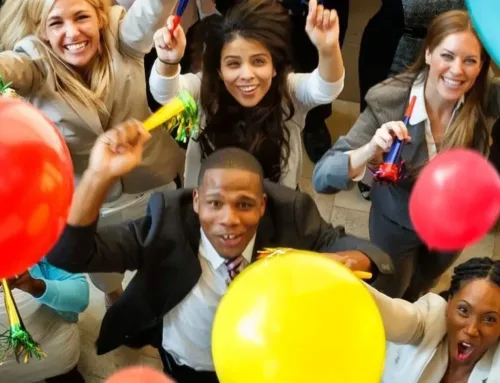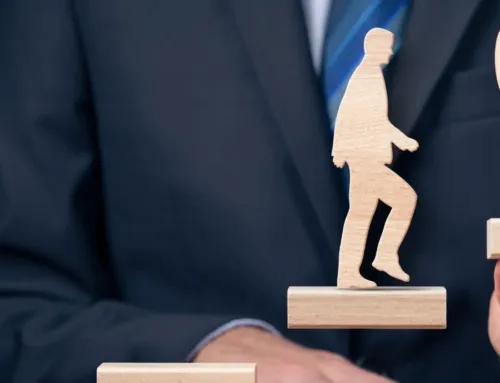You’ve heard the adage, “adversity builds character” or “what doesn’t kill you makes you stronger.” The COVID-19 pandemic brings the underlying meaning of those adages to the forefront of company leadership. We are living in an unprecedented time of uncertainty. And uncertainty puts your leadership skills to the test. The experiences you’ve had in the past year and the takeaways you’ve learned will define your leadership style for the future.
Importance of Empathy as a Leadership Skill
The past months have seen people overextended and over-stressed. The pandemic, social unrest, and ugly systemic racism occurrences have tapped out the collective public’s mental reserves. That is why, right now, empathy is one of the essential qualities for leaders. EWF International has long used Lumina Learning Psychometric tools in our programs. Lumina Learning details empathy as one of the key gender differences, and findings suggest women tend to be naturally more compassionate and empathetic than their male counterparts.
The past months have required leaders to improve and practice empathy. As companies deal with the emotional fallout of today’s current and ongoing events, empathy is the leadership skill in highest demand. The proof is easy to find, such as this Forbes article highlighting the strength and proficiency women leaders have shown dealing with the COVID-19 pandemic.
The Downside to Empathy
Unfortunately, empathy is a leadership skill that taxes the mental bandwidth of leaders. The current demand on leadership for empathy can emotionally overextend even the most empathetic individual and, in some instances, lead to mental fatigue and an added layer of mental stress. This can lead to exhaustion and burnout, leading influential leaders to become unavailable when they’re needed most.
Emotional Resilience: Another Key Leadership Skill
The key to avoiding a critical failure leading to burnout and exhaustion comes from leaders developing strong emotional resilience. Developing emotional resilience will improve your endurance and allow you to continue to be an effective leader while dealing with challenges. Especially when dealing with ongoing leadership challenges. While developing your emotional resilience isn’t as straightforward as building physical endurance, here are some techniques you can use to build emotional resilience.
Practice Flexibility
In uncertain times, circumstances change on a whim. Whatever decisions and plans you make today, be prepared to toss them to the side tomorrow and start from a blank slate. Preparing yourself mentally to move with the changes will allow you to stay focused on what’s happening now and for the foreseeable future. Being able to embrace change and remain flexible will help you grow as a leader.
Acknowledge Mistakes and Move Forward
Give yourself a modicum of grace and understanding when it comes to the mistakes you make. Being in new, uncertain situations where you often don’t have all the necessary information to make a fully informed decision will cause mistakes. Acknowledge the error and take steps not to repeat the error. While you may be tempted to dwell on what went wrong, second guess your choices, or lay blame, none of these will help you focus on making your next decision.
Enlist Help
There is no reason for you to go it alone. Spread the load of responsibility with those you trust and rely on your experts for advice. Place action plans in the hands of your capable team so they can execute. Delegate as much as possible and reach out to your peers for insight. Situations like these are when having a seat in a peer advisory group like EWF International’s Executive and Business Owner forums is a welcome beacon of guiding light.
Take a Break
No leader can be on 24/7. Those that try quickly succumb to the exhaustion and burnout states you are trying to avoid. Taking a break could be as simple as pausing before reacting. Take a breath and avoid an “amygdala hijack” reaction in a discussion or email. Taking a break also means finding time to step away. Step outside, take a break, and give your mind a few minutes to vent pressure while you breathe in some fresh air. These small breaks can give you the quick recharge necessary to stay clear-minded and effective throughout the day.
Get Comfortable with Being Uncomfortable
Uncertain situations and new, emergent challenges are uncomfortable because they’re not familiar. If you become familiar with them, they cease to be unique or uncertain. Replaced instead by new uncertain situations. Getting comfortable with being uncomfortable does not allow these types of unfamiliar situations and challenges to disorient your leadership compass. Your comfort and assuredness have to come from within by trusting in your experience and your ability to lead.
Improve Your Leadership Skills with EWF International
The most effective leaders spend time developing and refining their leadership skills. This can be difficult to achieve, especially as leaders move into more senior positions. EWF International offers support for career women at every stage of their career. EWF programs and forums help leaders work through situations, stay accountable, and provide fresh, alternative perspectives so you can learn new insight.
For more than 20 years, EWF International has been equipping and empowering women leaders to drive better business performance for their companies. EWF International offers peer advisory forums and leadership development programming for women at all career stages. Learn more about our peer advisory forums for women executives and business owners. Or, see our Emerging Leaders program, dedicated to early- and mid-career women honing their business, career, and strategic acumen.




